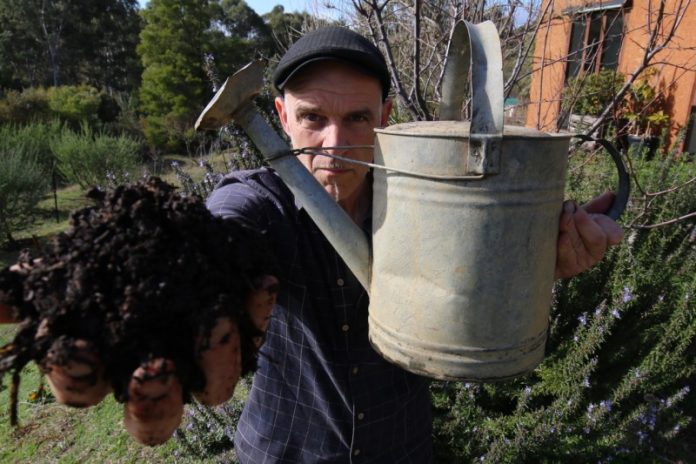When our soils are healthy, active with soil life and rich in well-decomposed organic matter they can hold many times more water than the same type of soil in poor condition.
Research from the University of Sydney has tried to quantify this effect and found that increasing the organic carbon content of a soil from one per cent up to four per cent increases the water holding capacity of a square meter of soil from 14.4 litres up to an amazing 57.6 litres, and that is just in the first 30 centimetres of soil!
I have observed this effect in my own garden. When I top-dress an actively growing summer garden bed with about 2 – 3 centimetres of good compost on the soil surface, mid-growing season, I notice I can go from needing to water every second day to as little as once or twice a week.
This is a huge saving in water and a big saving of time. The veggies benefit from the improved water-holding capacity of the compost, and the additional nutrients the compost provides for the rest of the growing season.
Sometimes the use of terms like ‘organic soil carbon’ can lead people to think that any old organic material can be added to soil to get this amazing benefit. But a quick thought experiment can help us see this is not quite right.
Imagine two garden beds with the same type of soil and as similar as they can be. Then imagine (like we did in last week’s Conversation) adding one very big log of wood (measuring one cubic metre in volume) to one of the garden beds and one cubic metre of rich, finished compost to the other. I think we all know that the garden bed with the compost is going to have much better water-holding capacity (and growth rate) than the one with the one big log in it.
Over many years that log will get broken down, through fungal, bacterial and termite action to a useful soil amendment. But immediately, and for many, many years, the compost is going to benefit the soil in our imaginary garden bed more than our log will.
Along similar lines, we might think that compost is just compost, and adding any kind of compost to our garden will have essentially the same impact. But the difference between good home-made compost and many commercial ‘composts’, (that tend to be woody and more ‘mulch’ like), will become apparent when we feel their texture and observe the effect they have on our soil and plants.
The more fully broken down the organic material in a compost is, the less it resembles the original bits of food and wood (and other things) that went into making it, and the more it becomes a new homogeneous, wonderful gluey substance that improves soil and holds water.
Is it time to fortify your garden’s water-holding capacity with some top-notch compost in preparation for the summer ahead?
– Joel Meadows works with *Yes In My Back Yard, (YIMBY), a community-scale composting initiative in Castlemaine and surrounds. Send questions or comments to hello@yimbycompost.com, or to book in for a compost workshop.







